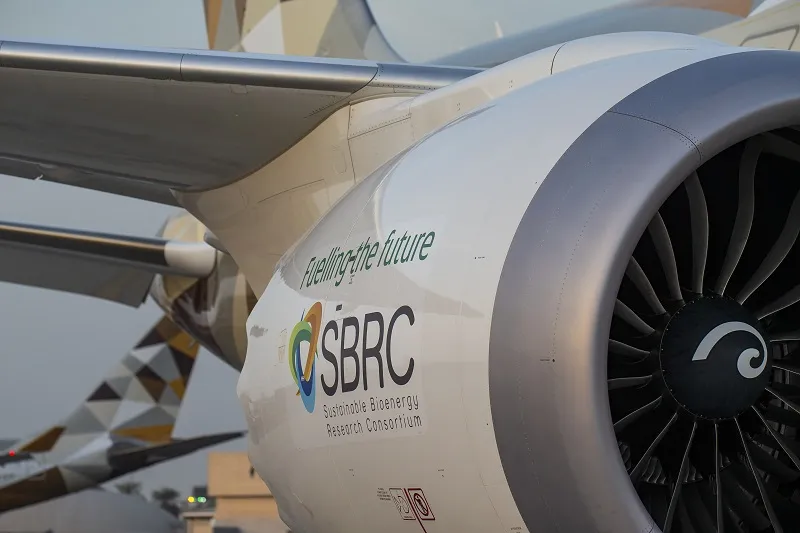
Fishy Etihad biofuel trial a plus for desert regions
Jan 17, 2019

The Fishy Etihad biofuel trial showcases a promising initiative in desert regions, highlighting the potential of sustainable aviation fuel derived from fish waste. This innovative project aims to reduce carbon emissions in air travel while utilizing a resource that would otherwise go to waste. By leveraging local marine resources, the trial not only supports environmental goals but also boosts economic opportunities in arid areas. The ability to produce biofuel from fish waste offers a viable solution to energy challenges faced by desert regions, demonstrating that even in harsh environments, sustainable practices can thrive and contribute to a greener future.
The recent biofuel trial conducted by Etihad Airways represents a significant step toward sustainable aviation practices, particularly beneficial for desert regions. This initiative aligns with global efforts to reduce carbon emissions and presents a model for further advancements in the aviation industry. The utilization of biofuels not only promises a lower environmental impact but also stimulates economic opportunities in arid areas, where traditional agricultural practices may be limited.
The Role of Biofuels in Aviation
Biofuels are derived from renewable biological resources, offering a sustainable alternative to conventional fossil fuels. In the context of aviation, these fuels can significantly reduce greenhouse gas emissions. Etihad’s trial demonstrates the feasibility of integrating biofuels into regular flight operations, showcasing the potential for airlines to decrease their carbon footprints.
Benefits for Desert Regions
Desert regions often face unique challenges such as limited water resources and harsh climatic conditions. However, these areas can also be transformed into hubs for biofuel production through the cultivation of drought-resistant crops and the development of innovative agricultural technologies. The following table outlines the key benefits of biofuel production in desert regions:
| Benefit | Description |
|---|---|
| Water Conservation | Utilizing drought-resistant crops for biofuel minimizes water usage in arid environments. |
| Economic Opportunities | Biofuel production can create jobs and stimulate local economies in desert communities. |
| Carbon Reduction | Biofuels offer a lower carbon footprint compared to traditional aviation fuels, aiding climate goals. |
| Renewable Energy Source | Desert regions can harness solar energy for biofuel production, promoting sustainability. |
Innovations in Biofuel Production
Innovations in agricultural practices and technology are crucial for maximizing the potential of biofuels in desert regions. Advances in genetic engineering, for instance, have led to the development of crops that can thrive in harsh conditions while requiring minimal water. Moreover, integrating solar energy into the biofuel production process can significantly enhance efficiency and sustainability.
Etihad's Commitment to Sustainability
Etihad Airways has made significant commitments towards sustainability, exemplified by its biofuel trial. The airline is actively exploring various sustainable aviation fuel (SAF) options to achieve its goal of net-zero emissions by 2050. This commitment not only aligns with global sustainability goals but also sets a precedent for other airlines in the industry.
Challenges and Considerations
While the potential benefits of biofuel production in desert regions are substantial, there are challenges to consider. The initial investment in technology and infrastructure for biofuel production can be high. Additionally, ensuring that biofuel crops do not compete with food production or lead to land degradation is crucial. Sustainable land management practices must be implemented to mitigate these risks.
Future Prospects
Looking ahead, the success of Etihad's biofuel trial could pave the way for similar initiatives worldwide. As more airlines invest in sustainable aviation fuels, there will be a growing demand for biofuel production facilities, particularly in regions with suitable climatic conditions. This could lead not only to environmental benefits but also to economic revitalization in desert areas.
Conclusion
Etihad Airways’ biofuel trial is a groundbreaking initiative that highlights the potential for sustainable aviation in desert regions. By leveraging the unique advantages of these areas for biofuel production, we can foster economic growth while contributing to global climate goals. The innovations in agriculture and technology that support biofuel development will be critical in overcoming challenges and ensuring a sustainable future for aviation.
Related Articles

Explore Thailand: The Best Islands to Visit for Paradise, Adventure, and Relaxation

The Ultimate Guide to the Best Islands in Thailand for Your Next Getaway

Do babies need passports? How to get a passport for a newborn

How to get a U.S. passport fast: here’s how to expedite the process

What is Mobile Passport Control: 5 reasons why you should use it

SENTRI vs. Global Entry: A detailed guide

Do you need a passport to go to the Bahamas? Let’s find out

Do you need a passport to go to Mexico? A detailed guide

Do you need a passport to go to Canada? We got the answer

Do You Need a Passport for a Cruise: An Essential Travel Guide

Booster Seat Requirements: All the Rules to Follow in Your Rental Car

What Are the World’s Most Powerful Passports, and How Does Yours Rank?

How to Take a Passport Photo at Home: A Helpful Guide

You've got to have heart! Southwest's new livery

Your opinion: Should water be free on low cost carriers?

Young women bolder than guys as solo travellers
